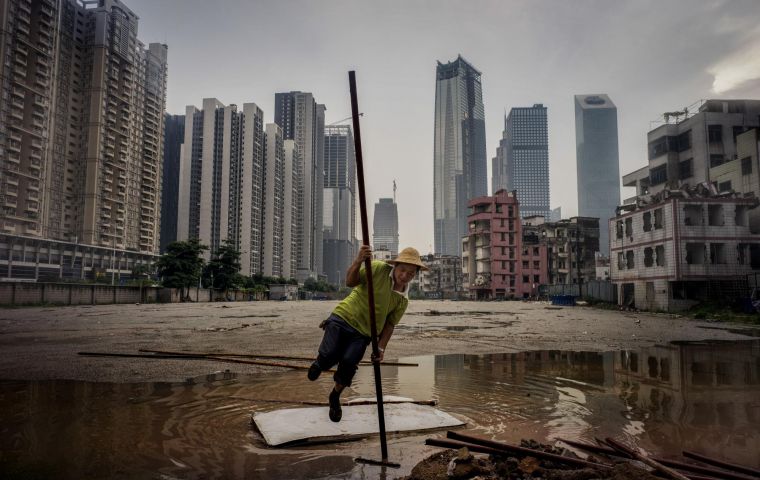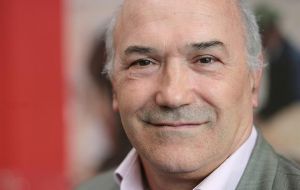MercoPress. South Atlantic News Agency
Gap between super rich and the poor at its widest, claims Oxfam
 Oxfam has produced similar reports for the past five years. In 2017 it calculated the world's eight richest individuals had as much wealth as the world's poorest half
Oxfam has produced similar reports for the past five years. In 2017 it calculated the world's eight richest individuals had as much wealth as the world's poorest half  Oxfam chief executive Mark Goldring said its constant readjustment of the figures reflected the fact that the report was based “on the best data available at the time”.
Oxfam chief executive Mark Goldring said its constant readjustment of the figures reflected the fact that the report was based “on the best data available at the time”. The gap between the super rich and the rest of the world widened last year as wealth continued to be owned by a small minority, Oxfam has claimed. Some 82% of money generated last year went to the richest 1% of the global population while the poorest half saw no increase at all, the charity said.
Oxfam said its figures - which critics have queried - showed a failing system. It blamed tax evasion, firms' influence on policy, erosion of workers' rights, and cost cutting for the widening gap.
Oxfam has produced similar reports for the past five years. In 2017 it calculated that the world's eight richest individuals had as much wealth as the poorest half of the world.
This year, it said 42 people now had as much wealth as the poorest half, but it revised last year's figure to 61. Oxfam said the revision was due to improved data and said the trend of “widening inequality” remained.
Oxfam chief executive Mark Goldring said its constant readjustment of the figures reflected the fact that the report was based “on the best data available at the time”.
“However you look at it, this is an unacceptable level of inequality,” he said.
Oxfam's report coincides with the start of the World Economic Forum in Davos, a Swiss ski resort. The annual conference attracts many of the world's top political and business leaders.
Inequality typically features high on the agenda, but Mr Goldring said that too often “tough talk fades away at the first resistance”.
The charity is urging a rethink of business models, arguing their focus on maximizing shareholder returns over broader social impact is wrong.
It said there was “huge support” for action with two thirds (72%) of 70,000 people it surveyed in ten countries saying they wanted their governments to “urgently address the income gap between rich and poor”.
But Mark Littlewood, director general at free market think tank The Institute of Economic Affairs, said Oxfam was becoming “obsessed with the rich rather than the poor”.
“Higher taxes and redistribution will do nothing to help the poor; wealth is not a fixed pie. Richer people are also highly taxed people - reducing their wealth won't lead to redistribution, it will destroy it to the benefit of no one,” he added.
It was a criticism echoed by Sam Dumitriu, head of research at another free market think tank - the Adam Smith Institute - who said the charity's inequality stats “always paint the wrong picture”.
“In reality, global inequality has fallen massively over the past few decades.
”As China, India and Vietnam embraced neoliberal reforms that enforce property rights, reduce regulations and increase competition, the world's poorest have received a massive pay rise leading to a more equal global income distribution.”
Oxfam said its figures - which critics have queried - showed a failing system. It blamed tax evasion, firms' influence on policy, erosion of workers' rights, and cost cutting for the widening gap.




Top Comments
Disclaimer & comment rulesCommenting for this story is now closed.
If you have a Facebook account, become a fan and comment on our Facebook Page!